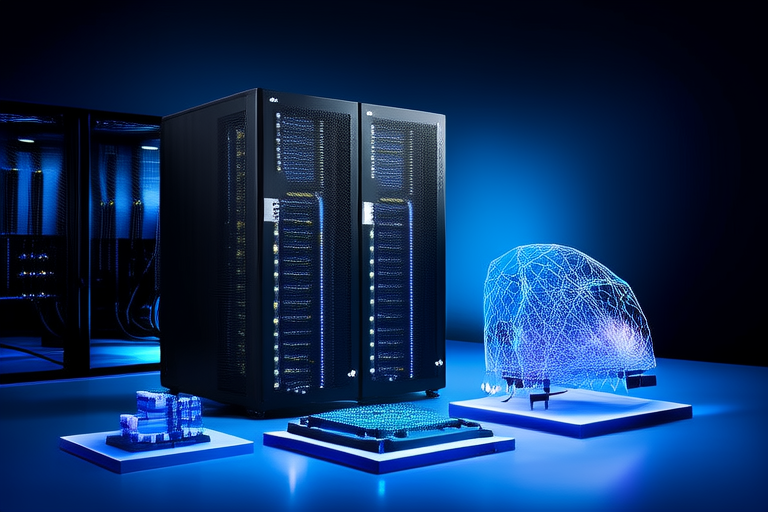Unlocking Potential: Innovations in Machine Learning and Beyond
Introduction
Machine learning (ML) has emerged as a cornerstone of modern technological advancement, transforming industries and enhancing everyday life. At its core, ML involves the development of algorithms that allow computers to learn from and make predictions based on data. This dynamic field has seen remarkable growth, driven by increasing computational power, vast amounts of data, and innovative methodologies. Today, ML is integral to sectors ranging from healthcare to finance, automotive, and entertainment.
The rapid evolution of ML has not only revolutionized traditional industries but also opened doors to entirely new possibilities. As we continue to push the boundaries of what machines can achieve, it becomes essential to explore beyond conventional ML techniques. This article delves into recent advancements in ML, their applications across various industries, and the ethical considerations and future directions that will shape this transformative field.
Recent Advances in Machine Learning
One of the most significant breakthroughs in ML is the advent of deep learning, a subset of neural networks that mimics the structure of the human brain. Deep learning models, such as convolutional neural networks (CNNs) and recurrent neural networks (RNNs), have achieved unprecedented accuracy in tasks like image and speech recognition. These advancements have been fueled by large-scale datasets and powerful GPUs, enabling faster training times and more complex model architectures.
Reinforcement learning, another cutting-edge technique, has found applications in robotics, gaming, and autonomous vehicles. By allowing machines to learn through trial and error, reinforcement learning enables them to optimize actions in dynamic environments. Notable examples include AlphaGo, which defeated the world champion in Go, and self-driving cars that navigate complex traffic situations.
Several research papers have significantly contributed to these innovations. For instance, Geoffrey Hinton’s work on backpropagation and AlexNet’s groundbreaking performance in image classification have paved the way for deeper and more accurate neural networks. Additionally, advancements in transfer learning and unsupervised learning have expanded the applicability of ML models to diverse domains.
Applications Across Industries
Healthcare
In healthcare, ML is revolutionizing diagnostics, treatment, and patient care. For example, radiologists now use ML algorithms to detect early signs of diseases like cancer with higher precision than ever before. Companies like Google Health and IBM Watson are developing AI-driven tools that assist doctors in making more informed decisions.
Moreover, ML is playing a crucial role in drug discovery and personalized medicine. By analyzing genetic data and patient outcomes, ML models can identify potential treatments and predict patient responses, leading to more effective therapies.
Finance
The financial sector has embraced ML for risk assessment, fraud detection, and algorithmic trading. Banks and insurance companies leverage predictive analytics to assess creditworthiness and prevent fraudulent activities. Hedge funds use ML algorithms to analyze market trends and execute trades at optimal times.
Automotive
The automotive industry is at the forefront of ML adoption, particularly in the development of autonomous vehicles. Companies like Tesla and Waymo are integrating advanced sensors and cameras with sophisticated ML algorithms to enable vehicles to perceive their surroundings and make intelligent driving decisions.
Entertainment
In the entertainment sector, ML is transforming content creation and distribution. Streaming platforms like Netflix and Spotify use recommendation engines powered by ML to suggest personalized content to users. Additionally, ML is being employed in video game development to create more immersive and adaptive gaming experiences.
Despite these successes, industries face several challenges when adopting new technologies. Data quality, integration with existing systems, and workforce upskilling are among the key hurdles that need to be addressed for widespread adoption.
Ethical Considerations and Future Directions
As ML continues to permeate various aspects of society, ethical concerns have come to the forefront. Issues such as data privacy, algorithmic bias, and lack of transparency pose significant risks. Ensuring that ML systems respect user privacy and do not perpetuate biases is critical for building trust and fostering responsible AI.
Efforts to address these concerns include developing transparent and interpretable models, implementing robust data governance frameworks, and promoting diversity in AI development teams. Initiatives like the European Union’s General Data Protection Regulation (GDPR) and the IEEE Global Initiative on Ethics of Autonomous and Intelligent Systems are steps towards more ethical AI.
Looking ahead, future trends in ML promise even greater potential. Quantum computing, federated learning, and explainable AI are just a few areas that could unlock new capabilities. Quantum computing, for instance, could drastically reduce training times for complex models, while federated learning allows for collaborative learning without sharing sensitive data. Explainable AI, on the other hand, aims to make ML models more understandable, enhancing trust and usability.
Conclusion
This article has explored recent advancements in machine learning, their transformative impact across various industries, and the ethical considerations shaping the future of AI. From deep learning and reinforcement learning to applications in healthcare, finance, automotive, and entertainment, ML has proven its value in driving innovation and solving complex problems.
To fully realize the potential of ML, it is crucial to continue innovating and addressing ethical challenges. By staying informed about emerging technologies and participating in their development, we can ensure that ML continues to unlock new possibilities and improve lives across the globe.




